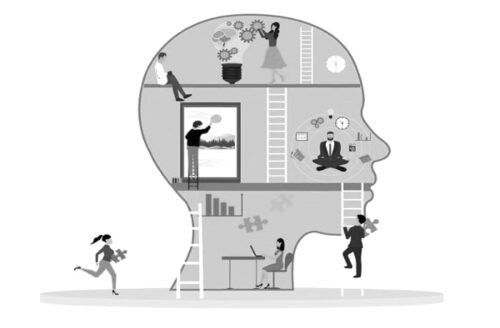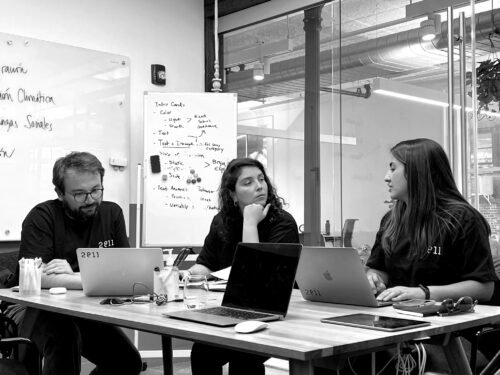
social innovation we understand it as the process of seeking and using creative solutions to address social problems and improve people’s lives. At 2811 we look for opportunities to bring this innovation to people and contexts that lead to impact projects and the creation of new solutions.
We emphasize that innovation can bring us unprecedented knowledge and proposals; also open ourselves to new perspectives and horizons. Therefore, it can have a significant impact on society, since it allows people and organizations work together to solve important problems in environmental, social and economic terms .
With this in mind we created and developed the course “Social and academic innovation of projects with impact” offered by Inacap —National Institute of Professional Training, in Chile— and 2811. It took place in December 2022, and it was an excellent opportunity for those interested in developing skills in innovation and projects with a social and academic focus .
The target audience for the course were teachers from Inacap educational institutions, and 90 of them participated.
The main focus: promoting sustainable development
This course provided participants with a deep understanding of the concepts and tools necessary to plan and execute projects with an impact on society and the environment.. In this way, develop innovative solutions that promote sustainable development within their educational environments.
The course addressed various topics that were explored through mentoring by experts. Thanks to the mentoring, it was possible to formulate projects on improvement for student desertion, inclusion, sustainability, student violence, gender and inclusion.
“I found the content we learned and the tools to explore ideas efficient and practical. In general, I like the methodology to imitate and apply it with the students I work with”, pointed out one of the teachers who participated.
Another important aspect of social innovation that was taken into account in the course was the sustainability of the projects over time.. The projects formulated had to be sustainable in the long term, to ensure that their impact is lasting. This can be achieved through the creation of sustainable business models and collaboration with local communities and organizations.
In addition, techniques for research and data analysis were taught, as well as the identification of opportunities for collaboration with organizations and companies. The course also included teaching about project management and how to ensure its long-term success.
Co-creation of solutions and impact projects are the key
To create projects with social impact, it is important to have a collaborative approach. Organizations and individuals must work together to identify problems and find effective solutions. In addition, it is important to involve the various communities that may be considered, as this gives them the opportunity to participate in creating solutions that directly affect them.
For this reason, the course sought for the participants to have connection spaces in which they could learn from the experiences of their colleagues and make joint work for co-create solutions. Of the total of 90 participants, 73 managed to establish connections for the identification of problems and the formulation of ideas to address them.
Thanks to this, the creation of projects that include the implementation of the inclusive language in the institution, a program for the reduction of work stress of teachers, an initiative to ensure student retention and lower the desertion, the decrease in violence in schools through dialogue, and change in the waste culture of butts.
Ideas were also formulated around the early identification of students with confidence problems and disabilities, in order to offer them opportunities, as well as support for student mothers with children under 4 years of age. In this way, the various projects cover areas ranging from inclusion to waste management.
“I appreciate that participation in this course allowed me to interact with teachers from different campuses and share ideas and perspectives,” said one of the participating teachers at the conclusion of the deliveries and activities.
This course was an excellent opportunity for people interested in making a positive difference in the world and developing valuable skills in the process. The 74 teachers who managed to complete the deliveries and finish the course are now prepared to apply their skills and knowledge to implement projects with high social and environmental impact.
Thanks to a course like the one we managed to offer, by working collaboratively and focusing on sustainability, it is possible to create impact projects that have a lasting projection in society.
Related Posts
Skills for resilience: coping with a new 21st century
Education is key to boosting innovation. This is where universities and their possible common spaces come in.
Read moreCollaboration between universities: a formula for social innovation
Education is key to boosting innovation. This is where universities and their possible common spaces come in.
Read moreEducation and technology: a powerful mix for planetary regeneration
If climate change is a major planetary event, how do you better educate the next generation of change agents?
Read more


